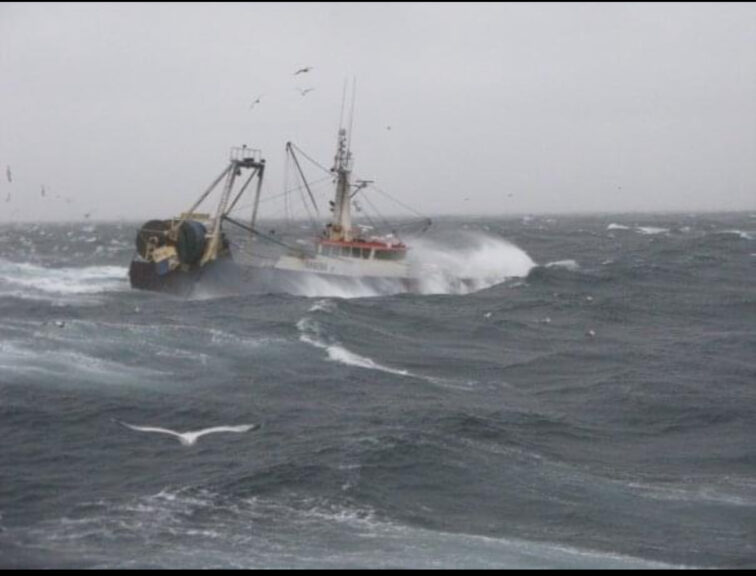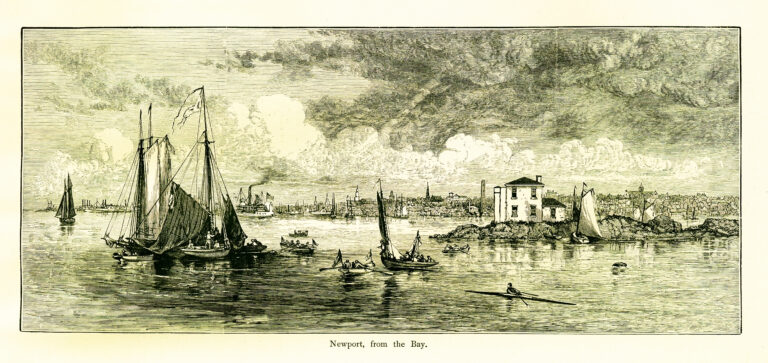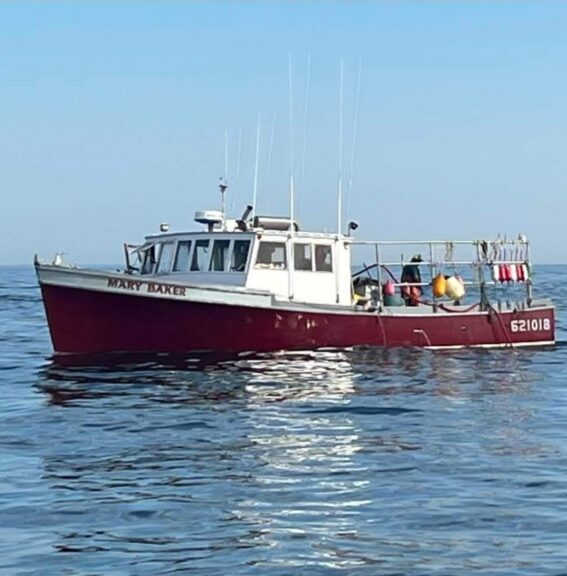New England fishermen hope to catch a victory this year at the nation’s highest court in a case over government overreach, a decision they believe will determine the fate of America’s oldest industry.
In two cases at the Supreme Court this week, fishermen contend that it is a Constitutional violation for them to be mandated to pay government officials to join their fishing voyages as human monitors under a regulation by the Commerce Department’s National Oceanic and Atmospheric Administration (NOAA).
“It was like $780 a day for a monitor,” Jerry Leeman, a longtime Maine fisherman, told The Daily Wire outside the Supreme Court. “I can’t even afford sometimes to pay my crew $780 a day, but we’re paying monitors.”
Leeman, who is from Harpswell, Maine, and founded the New England Fishermen’s Stewardship Association, said that the crew is also expected to pay for the food for monitors who he believes aren’t sufficiently trained for the dangerous job he does for a living.
“These guys are the ones that are fresh out of college,” Leeman said. “They got a couple of weeks of training online, and then they were brought out to sea with me, where I was responsible for keeping their safety.”
He recounted a time when his boat was knocked almost on its side during a storm, stating that if his crew had to abandon ship, he worried about having “to go down into the vessel to go after a child who’s having a panic attack.”

Jerry Leeman’s boat during a storm in the Atlantic.
Rob Odlin, a fifth-generation fisherman from Skyborough, Maint, Odlin recalled a time when a monitor on his boat put a dead bird in the same freezer as their personal food at a time when bird flu was on the rise.
“I just couldn’t believe myself,” he said. “I was like, what are you doing? Get that away from my steak. That’s not the proper place to store that.”
The program, put in place under President Donald Trump in 2020, intended to bring monitors on 50 percent of herring fishing trips to ensure environmental regulations are followed. Fishermen were refunded and the program was halted in April 2023 due to a lack of funding, CBS News reported.
Leeman, Odlin, and John Borden traveled to Washington, D.C. to support their fellow fishermen in the cases Relentless Inc. v. U.S. Dept. of Commerce and Loper Bright v. Raimondo. The cases push to overturn a 1984 landmark ruling that resulted in the “Chevron deference,” which allows courts to defer to federal agencies to interpret ambiguous laws.
If the fishermen lose the case, they say their industry will be left floundering, leading to the importation of more foreign seafood.
“It’s ridiculous that Icelandic fishermen can be off the coast of Iceland catching fish and then it goes on an airplane, lands in Boston, and becomes the fish and chips special at your local restaurant, when there’s perfectly good fish from the United States caught locally,” Odlin said.
Over 70 to 85 percent of seafood in the United States is imported, according to NOAA.

Antique illustration of Newport, a city on Aquidneck Island, Rhode Island, USA. Engraving published in Picturesque America (D. Appleton & Co., New York, 1872).
“The New England fishermen are the most regulated fishermen in the world, but you, the U.S. consumer, are buying product from nations that do not abide by those regulations,” Leeman said. “We’re getting killed for the sake of going green, but nobody else is.”
Borden, who is from Rye, New Hampshire — one of the first popular fishing locations for European explorers — says he is worried about the future of the fishing industry.
“We have to ask permission to go to work and it’s not so simple as I’m choosing to go today because the weather is good,” he said. “I have to ask Big Brother if we can actually go to work. We have to log on to a computer, you have to hope you have a signal and you’re also paying for these services.”
Borden, who has been fishing since he was 14 years old, says he is frustrated that regulations are made by people who don’t understand his industry.
“The administrators and these people that are professional academics, they don’t see what we see on a daily basis, and they wouldn’t know if they saw it anyways,” he said. “You can’t learn that out of a book.”

John Borden’s fishing boat, the Mary Baker.
Odlin said fishermen know best how to regulate the industry — and have a major interest in doing so.
“The last thing a fisherman wants to do is run out of fish,” Odlin said. “We want fish forever for our kids, for us.”
Leeman, who has spent 220-240 days a year for the last 23 years at sea, said ensuring he is in compliance with regulations is a full-time job on top of his already difficult line of work.
“One of the more dangerous jobs in the world is commercial fishing,” he said. “I mean, there’s no guarantee you’re coming home, so when you kiss your family goodbye in the morning, that could be the last kiss or the last hug.”
In addition to wanting to preserve their livelihood, the three fishermen said they love their jobs.
“The men and women in the fleet, we love what we do,” Leeman said. “No one wants to kill the last fish… what was given to us should be given to the next generation.”
“What’s in the water belongs to every U.S. citizen,” he added.
Critics worry that if the fishermen win their case, it can have dramatic consequences on federal agencies’ control over industries nationwide.
The justices appear divided over the case during arguments, with some showing skepticism over the doctrine and others showing hesitation about overruling it, according to Reuters.



Post a Comment